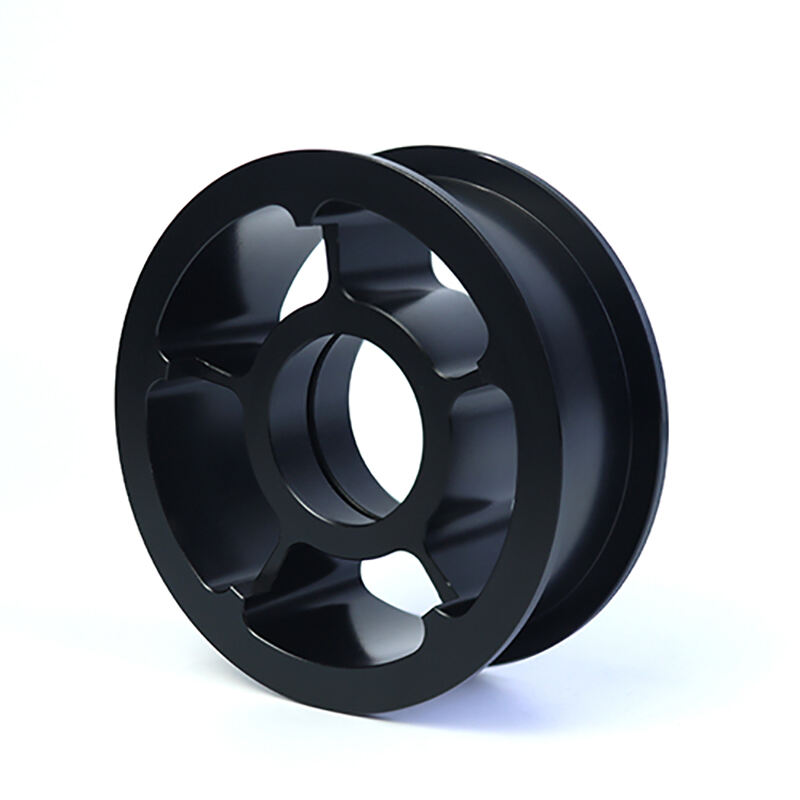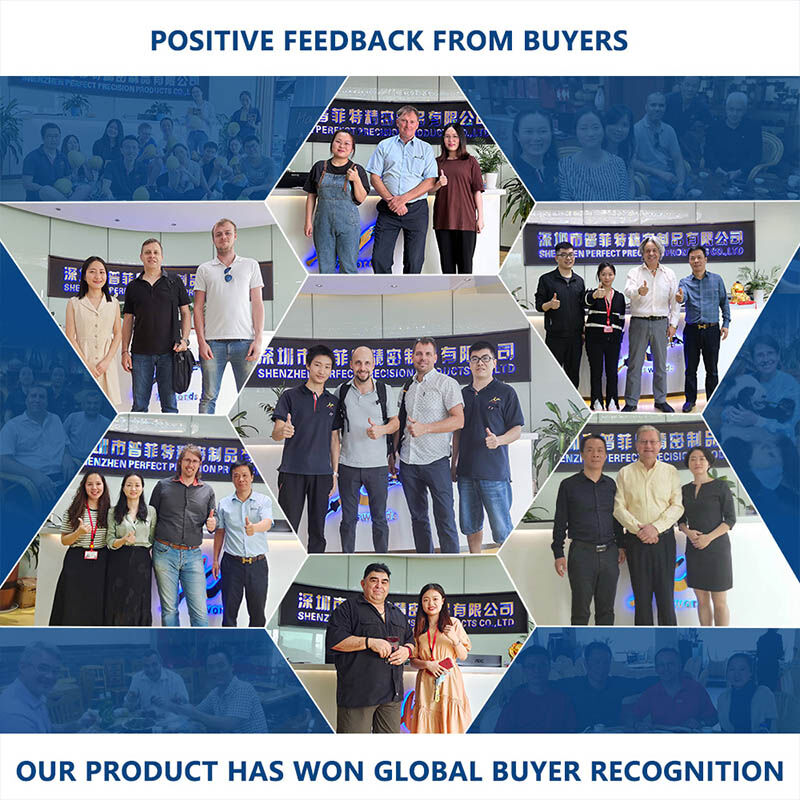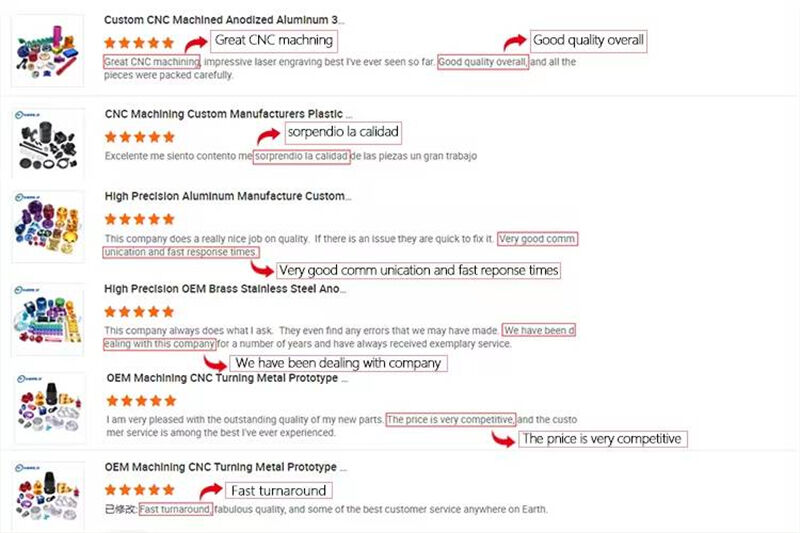المبنى 49، حديقة فومين الصناعية، قرية بينغهو، منطقة لونغغانغ
مغلق يوم الأحد
النوع: التوسيع، الحفر، النقش/تصنيع كيميائي، تصنيع بالليزر، التسوية، خدمات أخرى للتصنيع، الدوران، EDM السلك، النموذج السريع
رقم الطراز: OEM
كلمة مفتاحية: خدمات التصنيع باستخدام الحاسوب CNC
المواد: الفولاذ المقاوم للصدأ، الألمنيوم، السبائك، النحاس، المعدن، البلاستيك
طريقة المعالجة: تشكيل باستخدام CNC
وقت التسليم: 7-15 يومًا
الجودة: جودة عالية المستوى
الشهادة: ISO9001:2015/ISO13485:2016
MOQ: قطعة واحدة
هل سبق لك أن تساءلت كيف يأخذ الناس كتلة من المعدن أو البلاستيك ويحولونها إلى دعامة طيران دقيقة أو قطعة دراجة نارية مخصصة؟ هذا هو تصنيع مخصص باستخدام الحاسب الآلي بصورة مختصرة. إنها كأنها نحات آلي يمكنه نحت أي شيء تقريبًا من مادة صلبة بدقة مذهلة.

CNC هو اختصار لـ التحكم العددي عبر الحاسوب . ببساطة، هذا يعني أن الحاسوب يوجه أدوات القطع بدقة إلى المكان الذي يجب أن تتحرك إليه لتشكيل قطعتك.
كلمة "مخصص" تعني أن القطعة صُنعت خصيصًا لك - وليس تم أخذها من الرف. أنت تزودنا بملف تصميم ثلاثي الأبعاد، وورشة الآلات تحوّل هذا المخطط الرقمي إلى جسم مادي، في كثير من الأحيان بدقة تفوق شعرة بشرية.
• الدقة هي الملك: هل تحتاج إلى قطعة بتفاوت ±0,01 مم؟ لا مشكلة. ولذلك تُستخدم هذه التقنية في الزرع الطبي والمكونات الجوية الحرجة.
• لا يوجد كمية طلب حد أدنى (MOQ): يمكنك تصنيع نموذج أولي واحد فقط أو ألف قطعة إنتاج. ولا حاجة للالتزام بكميات ضخمة كما هو الحال في صب الحقن.
• حرية في اختيار المواد: يمكنك الاختيار من مئات المعادن والبلاستيكات للحصول على القوة أو الوزن أو مقاومة المواد الكيميائية التي تحتاجها بالضبط.
• السرعة: من الفكرة إلى امتلاك القطعة بيديك قد يستغرق بضعة أيام فقط. وهي أسرع طريقة للحصول على نموذج وظيفي عالي الجودة.
يندرج معظم أعمال CNC المخصصة تحت فئتين:
• تفريز CNC: أداة قطع دوارة تتحرك حول كتلة ثابتة من المادة. وهي الخيار الأمثل لتصنيع القطع المعقدة أو ذات الشكل الصندوقي أو المعقدة مثل الدعامات والغلاف والقوالب.
• التفريز باستخدام الحاسب العددي (CNC): يدور المادة (قضيب معدني) بينما تظل الأداة ثابتة وتقوم بقطعها. هذا النوع مناسب تمامًا لأي شيء دائري مثل المحاور، والأسطوانات، والمسامير، والوصلات.
القائمة لا تنتهي، ولكن فيما يلي بعض الأمثلة الشائعة:
• صناعة السيارات: مكونات مخصصة للمحرك، وأجزاء تعليق، وتركيبات أولية
• صناعة الطائرات: دعامات خفيفة الوزن، وإطارات الطائرات بدون طيار، ومكونات عجلات الهبوط
• الطب: نماذج أولية للأدوات الجراحية، ووحدات تحمل أجهزة التشخيص، وقوالب وتثبيتات
• المنتجات الاستهلاكية: مقابض كاميرات مخصصة، وتجهيزات معمارية فريدة، ومكونات منتجات بإنتاج محدود
التشغيل الآلي باستخدام الحاسب العددي (CNC) هو الأداة المثالية لتحويل فكرة رائعة إلى جزء ملموس بدقة عالية. إنه مرن، سريع، وقادر بشكل مذهل.



س: متى يمكنني استلام نموذج أولي من CNC؟
ج: تختلف مدة التسليم حسب تعقيد القطعة وتوفر المواد ومتطلبات التشطيب، ولكن بشكل عام:
• نماذج أولية بسيطة: 1–3 أيام عمل
• مشاريع معقدة أو تتكون من أجزاء متعددة: 5–10 أيام عمل
الخدمة السريعة متوفرة في كثير من الأحيان.
س: ما هي ملفات التصميم التي يجب أن أزودكم بها؟
ج: للبدء، يجب أن ترسل:
• ملفات CAD ثلاثية الأبعاد (يفضل أن تكون بصيغة STEP أو IGES أو STL)
• رسومات ثنائية الأبعاد (PDF أو DWG) إذا كانت هناك متطلبات تحملات دقيقة أو خيوط أو تشطيبات سطحية
س: هل يمكنكم التعامل مع تحملات دقيقة؟
ج: نعم. إن التشغيل الآلي باستخدام الحاسوب (CNC) هو الخيار الأمثل لتحقيق تحملات دقيقة، وعادة ضمن:
• ±0.005" (±0.127 مم) كقياسي
• يمكن توفير تحملات أكثر دقة عند الطلب (مثل ±0.001" أو أفضل)
س: هل يناسب النموذج الأولي لـ CNC الاختبار الوظيفي؟
نعم. يتم تصنيع نماذج أولية باستخدام تقنية CNC من مواد هندسية حقيقية، مما يجعلها مثالية للاختبارات الوظيفية، والتحقق من التوافق، والتقييمات الميكانيكية.
هل تقدمون إنتاجًا بكميات صغيرة بالإضافة إلى النماذج الأولية؟
ج: نعم. تقدم العديد من خدمات CNC إنتاجًا تجريبيًا أو تصنيعًا بكميات صغيرة، وهو مثالي لكميات تتراوح من 1 إلى مئات الوحدات.
هل تصميمتي سرية؟
نعم. توقع خدمات تصنيع النماذج الأولية باستخدام تقنية CNC ذات السمعة الجيدة اتفاقيات عدم الإفصاح (NDAs) دائمًا، وتحافظ على سرية ملفاتك والممتلكات الفكرية الخاصة بك.
جميع الحقوق محفوظة © شركة شنتشن بيرفكت برسيزيون برودكتس المحدودة — سياسة الخصوصية—المدونة